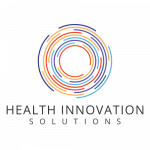
Focusing on ideation now for 2026 and beyond is critical for healthcare companies not only to maintain their competitive edge but also to anticipate and respond to the rapid pace of technological and industry change. By engaging in forward-thinking innovation today, companies can position themselves to thrive in a future where healthcare delivery, patient expectations, regulatory landscapes, and technological advancements will be vastly different. This proactive approach allows healthcare organizations to stay agile, align with emerging trends, and seize future opportunities for growth and impact. But the time is NOW for your Product teams, or ideally two months ago, to focus in on ideation. Here’s why focusing on ideation now is essential to driving future success.
- Long Innovation Cycles in Healthcare
- Time-intensive development: Healthcare product development—whether it’s a new medical device, pharmaceutical, or digital health solution—often has long development and approval cycles due to regulatory requirements, testing, and clinical trials. Starting ideation now for 2026 allows time for prototyping, validation, and meeting compliance requirements, such as FDA or EMA approval processes.
- R&D investment payoff: Healthcare innovations typically require significant research and development (R&D) investments. By beginning ideation now, companies can ensure they have enough time to refine and mature concepts into market-ready products, yielding a higher return on investment.
- Coordination and Cross-Department Alignment
- Coordination and Organization: Early ideation demands well-structured coordination between R&D, regulatory, marketing, and clinical teams to ensure that all perspectives are incorporated into the development process. Organized workflows help streamline communication, reduce delays, and ensure that innovation moves forward efficiently from concept to execution.
- Cross-Department/Divisional Alignment: Building alignment across departments and divisions is crucial for accelerating innovation. By creating a unified vision and fostering open collaboration, healthcare companies can break down silos, leverage diverse expertise, and ensure that innovation efforts are aligned with organizational goals, regulatory requirements, and market demands.
- Anticipating Technological Advancements
- Leverage emerging technologies: The rapid pace of technological evolution—such as artificial intelligence, machine learning, blockchain, and genomics—means that companies need to anticipate future tech capabilities to remain relevant. Developing products that incorporate or capitalize on these technologies will require a forward-thinking approach to ideation and strategic planning.
- Integration of health data: As healthcare data interoperability and the use of big data grow, ideating now allows companies to develop products that are prepared to operate within more integrated and complex healthcare ecosystems in the future.
- Shifting Consumer Expectations
- Personalized healthcare demand: Consumer expectations for personalized, patient-centered care are rising. Healthcare companies need to anticipate this demand by ideating solutions that leverage data and technology to offer more tailored, convenient, and proactive healthcare experiences by 2026.
- Consumer-driven health plans: Consumers are becoming more active in managing their own healthcare, driven by greater access to information and digital health tools. Future healthcare products and services must reflect this shift toward consumer empowerment and autonomy, which requires ideation now to meet those needs in the coming years.
- Regulatory and Policy Changes
- Proactive regulatory compliance: Healthcare regulations often take years to fully materialize, but companies that can foresee upcoming policy trends (e.g., data privacy, AI ethics, value-based care models) will be better positioned to align their innovations with future regulatory landscapes. Early ideation helps companies ensure they can meet evolving standards by the time their products launch.
- Adapting to policy shifts: Governments and health agencies are increasingly focused on addressing healthcare affordability, access, and equity. Developing new solutions now that can respond to potential changes in healthcare policies or reimbursement models in 2026 will position companies as leaders in navigating these shifts.
- Rising Competition and Market Saturation
- Competitive advantage: The healthcare market is becoming increasingly crowded, with startups and tech giants entering the field alongside traditional healthcare players. Ideating early allows companies to stay ahead of competitors by developing disruptive solutions that are well-positioned to capture market share in the future.
- Creating new markets: Focusing on ideation now gives companies the opportunity to explore unmet needs and create new product categories or services that can differentiate them in 2026 and beyond.
- Global Health Challenges
- Pandemic preparedness: COVID-19 has exposed vulnerabilities in healthcare systems around the world. Companies that ideate solutions for future pandemics or large-scale health crises will be better prepared to respond to global health needs. This could involve new diagnostic tools, remote care solutions, or supply chain innovations that address global healthcare challenges.
- Addressing aging populations: By 2026, many regions, particularly in developed nations, will face the challenge of aging populations. Healthcare companies need to start ideating now to develop products and services that meet the needs of elderly populations, such as home-based care, chronic disease management, and age-friendly technologies.
- Sustainability and Social Responsibility
- Environmental considerations: There is growing pressure on healthcare companies to reduce their environmental impact and adopt sustainable practices. Companies that start ideating eco-friendly healthcare products, such as reusable medical devices or low-waste packaging, will align with future regulatory and consumer expectations for sustainability by 2026.
- Health equity and inclusivity: Social responsibility is becoming increasingly important in healthcare. Ideation efforts should focus on products and services that promote health equity, access, and inclusivity, ensuring that healthcare solutions are available and effective for underserved and marginalized populations in the future.
- Long-Term Healthcare Trends
- Chronic disease management: Chronic diseases such as diabetes, heart disease, and cancer will continue to be a major focus for healthcare. Ideating now on solutions for early detection, personalized treatment, and home-based care can position companies to address these long-term trends by 2026.
- Preventative care focus: The future of healthcare is likely to move further toward preventative care models, with a focus on wellness and early intervention. Healthcare companies can develop new products and services that encourage preventative health behaviors, reduce costs, and improve patient outcomes, but this requires early ideation and development.
- Integration of Digital Health Ecosystems
- Telemedicine evolution: As telehealth continues to expand, the next few years will see significant advancements in how digital health solutions integrate with traditional care models. Companies need to ideate now to create products that fit seamlessly within this evolving digital-first healthcare ecosystem, including remote patient monitoring, AI-driven diagnostics, and virtual care platforms.
- Interoperability and data sharing: Ideating now on solutions that ensure interoperability between different health data systems and devices will allow healthcare companies to create products that work across multiple platforms and improve data-driven care by 2026.
- Strategic Partnerships and Ecosystem Building
- Collaboration with tech companies: Healthcare is increasingly intertwined with technology, and ideating now allows healthcare companies to explore partnerships with tech firms, startups, and other non-traditional players. These partnerships can help create innovative healthcare solutions for the future, leveraging strengths from different industries.
- Building ecosystems: The future of healthcare is likely to be ecosystem-driven, where data, products, and services are integrated across various touchpoints. Companies that start ideating and developing ecosystems now will have a competitive advantage in 2026 as this trend solidifies.
By focusing on ideation now, healthcare companies can ensure they are not only prepared for 2026 but also leading the charge in delivering innovative, impactful solutions that address the future needs of patients, providers, and healthcare systems. Starting ideation early positions organizations to anticipate and embrace emerging technologies, adapt to evolving consumer expectations, and navigate regulatory changes before they become obstacles. From personalized care models to digital health platforms, companies that invest in forward-thinking strategies today will shape the future of healthcare and stay ahead of competitors.
However, navigating the complexities of healthcare innovation can be challenging. That’s where Health Innovation Solutions comes in. Our expertise in healthcare ideation, product development, strategy, and coordination can help your organization turn future concepts into actionable plans. Whether it’s accelerating your product development timeline, guiding you through regulatory landscapes, or identifying the technologies that will drive your next breakthrough, we are here to support your journey every step of the way. Let us help you create the solutions that will define the healthcare of tomorrow.
